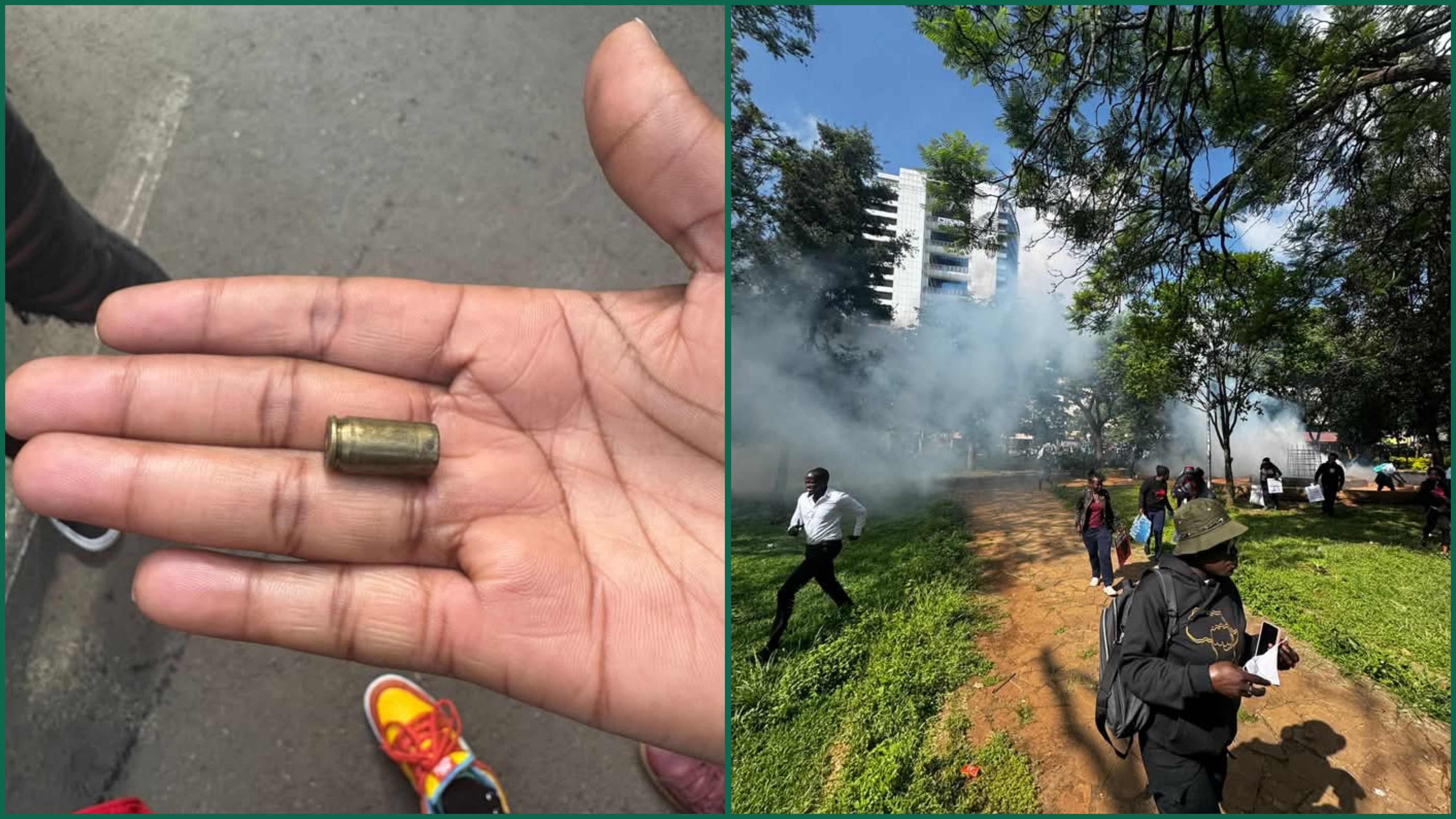KENYA : ANTI-FEMICIDE Campaigners in Nairobi City's Central Business District, CBD, were forced to scamper for safety after police teargassed them to disperse the crowds.
The protests aimed to bring together women, human rights activists, and allies to raise awareness on the increasing cases of femicide and GBV in the country as the 16 days of activism came to an end.
The campaign runs annually from November 25 to December 10, highlighting the severe impacts of gender-based violence.
According to Amnesty Kenya, human rights defenders Irungu Houghton and two others have been unlawfully arrested by the police during anti-femicide protests in Nairobi.
“On this International Human Rights Day, a day dedicated to celebrating and upholding the dignity, freedom, and rights of all people, we witnessed a grave violation of these very principles. Peaceful protestors in Nairobi, predominantly women and allies marching against the epidemic of femicide, were teargassed, violently dispersed, and unlawfully arrested by police."
"Among those detained are human rights defenders Irungu Houghton and two others, who were unjustly arrested despite their peaceful participation,” Amnesty International stated.
In addition, the human rights organisation condemned the use of excessive force on the protestors, adding that the tear gassing and unwarranted arrests not only violate human rights but also the constitution.
“The violent response by police, including the arrest of these peaceful protestors, is a direct attack on Kenya’s democratic principles and the human rights of its citizens."
"The excessive force and unwarranted arrests not only violate national and international human rights laws but also send a chilling message to all those advocating for justice and accountability. These actions undermine the rule of law and reinforce the impunity that perpetuates violence against women," Amnesty International added.
Kenyans have condemned the police for disrupting the peaceful protests saying that the tear gassing of peaceful and unharmed protesters by the police is an unnecessary provocation and a mockery of the protection of human rights.
Earlier last week, various government agencies and stakeholders in the health sector came together to discuss strategies for the prevention and response to violence affecting men, women and children.
Echoing the 2023 theme, "Towards Beijing +30: United to End Violence Against Women and Girls," attendees pledged to unite in the fight against violence, recognizing the need to protect all genders.
Addressing participants during the campaign launch, the coordinator Kiandutu Health Centre and Thika Sub-County Sexual and Gender-Based Violence, Dr. Peter Muchunu, highlighted the alarming increase in violence cases linked to drug abuse and unemployment.
He underscored the urgent need to address GBV, emphasizing its detrimental impact on both men and women's ability to participate fully in leadership, advocacy, and public life.
“Our health facility receives an average of 15 GBV reports each month. However, we believe that this figure only scratches the surface, as many cases go unreported due to fear, shame, stigma, and lack of awareness. The recent surge in femicide and other forms of violence against women and girls is a grave concern that requires immediate attention.” Dr. Muchunu emphasized.
On her part, Dr. Susan Gitau, a Counselling Psychologist at a leading mental health facility, emphasized the importance of providing free medical and psychological support to victims of GBV.
She explained that such support is crucial in helping survivors overcome post-traumatic stress disorder (PTSD) and other mental health challenges often associated with traumatic experiences.
“The scourge of GBV is not gender specific. Men and boys, particularly, are suffering in silence from physical and emotional abuse, including sexual violence. We must prioritize their mental health to prevent a future generation marred by trauma,” she said.
Dr. Gitau identified six key strategies to combat GBV: prevention, accountability, survivor support, policy reform, male engagement, and community leadership.
“Eliminating gender-based violence demands a collective effort. By uniting our voices and actions, we can build a future where all genders can live safely and with dignity, free from the threat of violence,” she said.
Thika West Deputy County Commissioner James Wanyoike highlighted the crucial role of local leadership and the legal system in safeguarding vulnerable individuals.
He emphasized the need for increased vigilance, especially during periods like the festive season, when cases of violence historically tend to rise.
“A staggering 97 women have been brutally murdered in just the last three months. GBV affects women of all ages, from infants to the elderly. We must accelerate the judicial process for GBV cases,” he stated.
Gender Based Violence survivors bravely shared their stories, revealing the devastating consequences of violence on their physical, emotional, and psychological well-being.
They urged for expanded access to psychosocial support, mental health services, and empowerment programs to aid their recovery.







